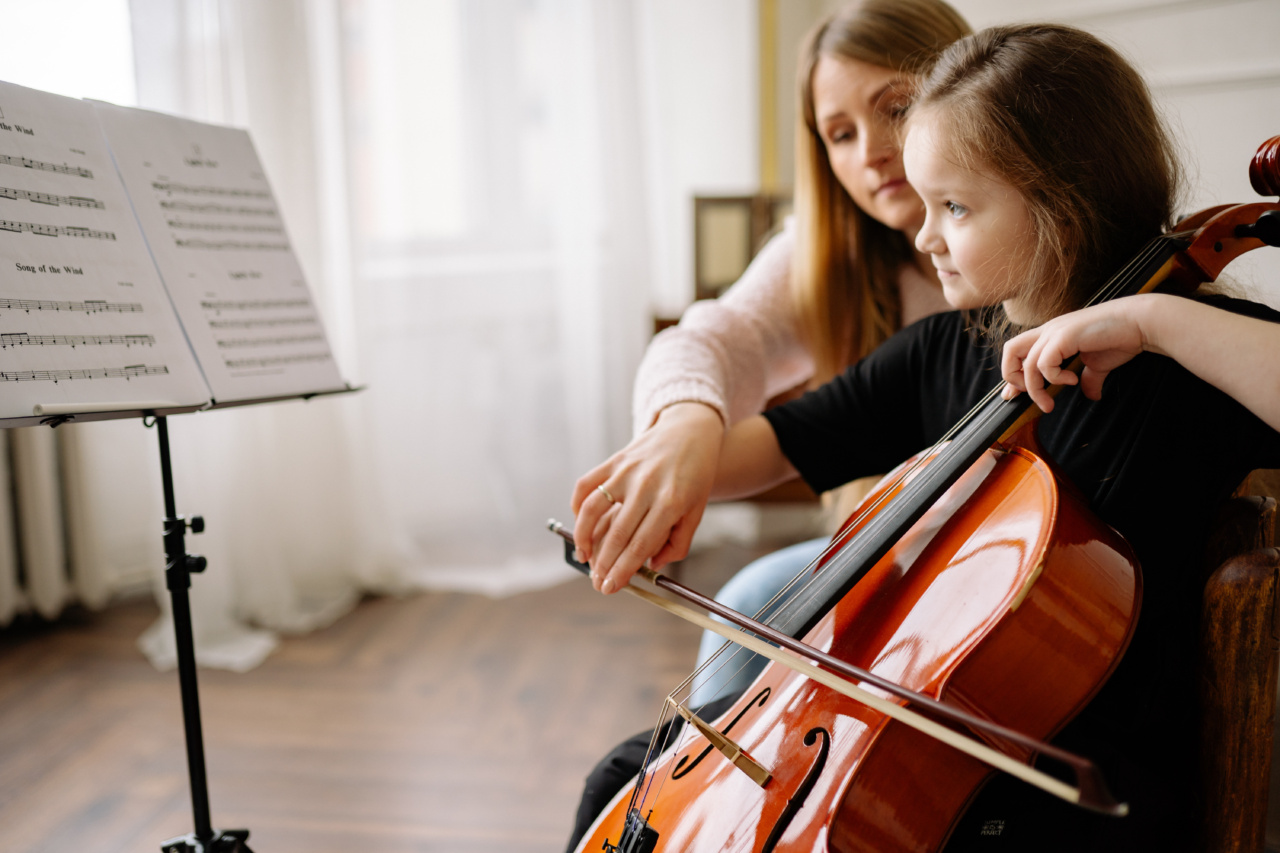Learning to play a musical instrument is a hobby that brings joy and fulfillment to millions of people around the world.
But did you know that it also provides a plethora of benefits for your brain? The act of playing an instrument engages various parts of the brain simultaneously, creating a harmonious symphony of neural connections. In this article, we will explore why learning an instrument is not just a creative pursuit, but also an exercise for the mind.
1. Enhances cognitive abilities
Playing a musical instrument requires the use of both fine motor skills and coordination between different body parts. These actions, along with the need to read sheet music or remember complex melodies, help to improve cognitive abilities.
Research has shown that musicians have a better working memory and are better at problem-solving compared to non-musicians. The brain’s ability to process information effectively is enhanced through regular practice and training.
2. Develops discipline and patience
Learning an instrument is not an overnight achievement; it requires dedication, discipline, and patience.
Regular practice sessions instill discipline into the musician’s routine, as they work on mastering difficult techniques or challenging musical pieces. This discipline and patience also carry over to other aspects of life, promoting better time management and perseverance in the face of challenges.
3. Sharpens multitasking skills
Playing a musical instrument demands the ability to multitask. Musicians must coordinate their fingers, read sheet music, and listen to their own performance, all while maintaining the rhythm and dynamics of the music.
This multitasking ability can extend beyond the realm of music and into daily life, allowing musicians to excel in activities that require juggling multiple tasks simultaneously.
4. Boosts memory retention
Learning to play an instrument involves memorizing a vast amount of information, such as notes, chords, and music theory. This constant exercise in memory retention strengthens the brain’s ability to encode, store, and retrieve information.
Musicians often have better long-term memory and a reduced risk of cognitive decline as they age.
5. Improves mathematical and spatial skills
Music and mathematics share a strong connection. When playing an instrument, musicians must understand rhythm, timing, and relationships between notes, all of which involve mathematical principles.
Additionally, learning to read sheet music and interpret musical symbols requires spatial awareness and the ability to visualize patterns. By engaging these skills, musicians often demonstrate higher proficiency in mathematics and spatial reasoning.
6. Enhances emotional intelligence
Music is a language that conveys emotions without words. When playing an instrument, musicians learn to express themselves, understand the meaning behind the music they play, and connect with an audience on an emotional level.
This process enhances emotional intelligence by developing empathy, intuition, and the ability to interpret and convey feelings effectively.
7. Reduces stress and anxiety
Playing an instrument provides a therapeutic escape from the stresses of daily life. The focused concentration required during practice sessions can act as a form of meditation, allowing musicians to temporarily detach from worries and anxieties.
It has been shown that playing an instrument releases endorphins, which elicit feelings of happiness and relaxation, ultimately reducing stress levels and promoting overall well-being.
8. Encourages creativity and self-expression
Music is a powerful form of artistic expression. Learning an instrument allows individuals to tap into their creativity, compose their own music, or interpret existing pieces in unique ways.
This creative outlet fosters self-expression, encourages experimentation, and cultivates a sense of individuality and identity.
9. Promotes social connections
Playing an instrument can be a social activity, bringing people together through shared musical experiences. Musicians often collaborate with others, whether in bands, orchestras, or informal jam sessions.
This collaboration fosters teamwork, empathy, and a sense of belonging within a community of fellow musicians. By connecting with others through music, individuals build friendships and create lasting bonds.
10. Increases concentration and focus
While playing an instrument, musicians must concentrate on multiple aspects simultaneously, such as reading the sheet music, coordinating their fingers, and focusing on the expressive nuances of the music.
This continuous mental engagement strengthens concentration and focus. Improved concentration not only benefits musical performance but also carries over into academic or professional pursuits that require sustained attention.
Conclusion
Learning to play a musical instrument is not only a journey of creative exploration but also a transformative experience for the brain.
It enhances cognitive abilities, fosters discipline and patience, sharpens multitasking skills, boosts memory retention, improves mathematical and spatial skills, enhances emotional intelligence, reduces stress and anxiety, encourages creativity and self-expression, promotes social connections, and increases concentration and focus. So, whether you’re picking up a guitar, sitting at a piano, or blowing into a trumpet, know that your brain will thank you for the incredible benefits that come with learning an instrument.






























